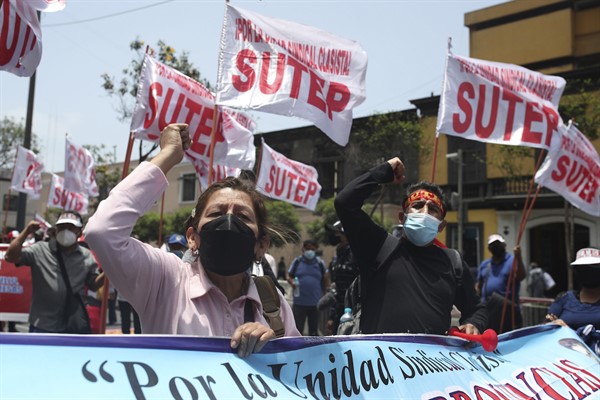LIMA, Peru—Peruvian President Pedro Castillo may or may not be a socialist, but there is no denying that his political branding is rooted almost exclusively in his identification with Peru’s most marginalized citizens. His campaign slogan for the June presidential election, “No more poor people in a rich country,” was the least of it. What carried real weight with voters was his personal background as a campesino—a rural inhabitant usually with Indigenous heritage and ties to the land. For many, that made Castillo the living antithesis to the largely white Lima elites who have overseen a booming economy in a country still plagued by galloping corruption, inequality and injustice.
But now, just five months into Castillo’s five-year term, a picture is emerging of a president who, by commission and omission, is proving to be anything but a friend to the most vulnerable Peruvians. Instead, his administration has sided with dubious vested interests to roll back badly needed reforms that were intended to improve the quality of instruction in state-run schools and finally provide Peruvians with safe, reliable public transport. Meanwhile, the 52-year-old Castillo has already become personally immersed in a series of scandals in a country where endemic graft has long hampered growth and fueled economic inequity, even as the proportion of Peruvians living below the poverty level—defined as anyone living on less than 360 soles, or $90 per month—jumped to 30 percent during the pandemic, up from 20.2 percent in 2019.
To make matters worse, Castillo has also proved incapable of providing the kind of leadership needed to recover from the devastation wrought by a pandemic that has seen Peru record the world’s highest COVID-19 mortality rate. Needless to say, although the coronavirus pandemic has touched almost all Peruvians personally, it is the poor who continue to bear the brunt of the health crisis and its economic fallout, and who are most hurt by the lack of a stable, serious government as Peru attempts to fight its way back from a national nadir.

